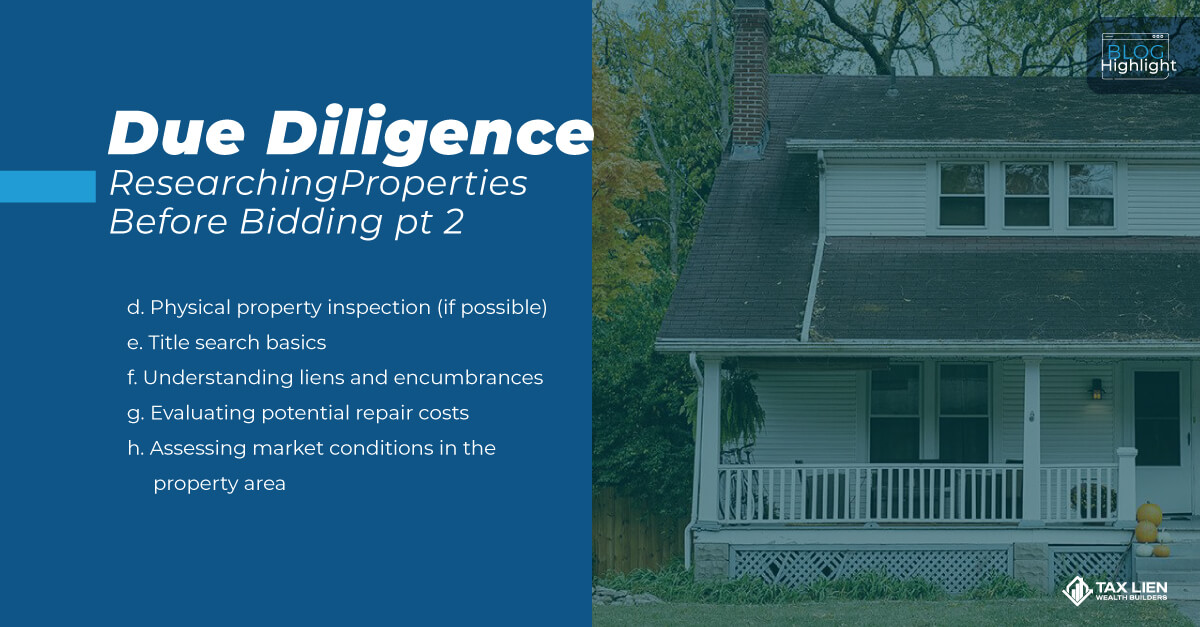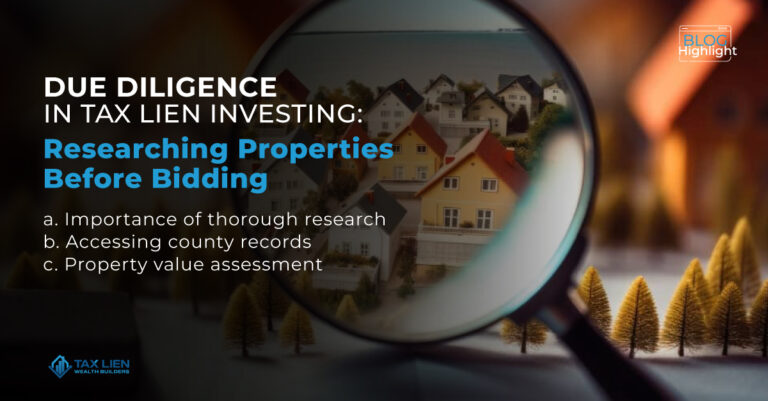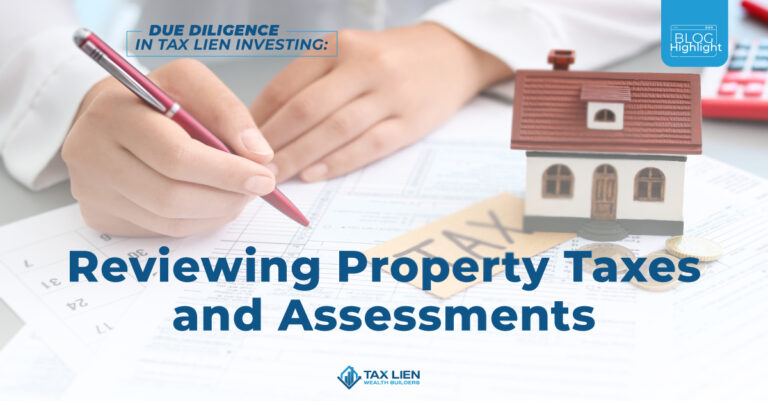Due Diligence: Researching Properties Before Bidding Part 2
In our last post, we covered the importance of thorough research started in tax deed investing.
Purchasing a tax deed property is a smart move however, a smarter move is learning to carry out due diligence in every aspect before acquiring a tax deed property. This ensures you are making informed decisions.
Now lets cover the steps to take before placing a bid on a tax deed property.
Steps To Take in Ensuring Due Diligence As An Investor
Physical property inspection
The best way to evaluate and access what you are buying is to see it physically. Your conclusion from the physical assessment should guide your expectations and bidding strategy.
This step reveals hidden issues that may not be visible in pictures, videos and online listings. Although this isn’t always possible, physical inspection saves you from making wrong investment decisions.
A quick drive by the property can give you a level of information about the property and a feel for the neighborhood, and a closer look will provide you a more detailed condition of the property.
Title search basics
A title search in tax deed investing is the process of examining public records to confirm the legal ownership of a property. This process also helps to identify any claims, liens, or encumbrances that could affect the transfer of ownership.
It is like tracing the property’s family tree. When a proper title search is carried out you confirm that the property has a clean history, meaning it is void of any legal claims or disputes that could trouble you later.
You can start by checking public records either at the county courthouse or online, however if you want a thorough search which is advisable, consider hiring a title company.
Title companies are experienced in digging into the history of properties and are able to identify any red flags that might not be immediately obvious.
Understanding liens and encumbrances
Liens and encumbrances are like hidden traps that can complicate your investment. They are legal claims that help you assess the true cost and potential risks of the investment.
They include unpaid taxes, mortgages, or debts. If not properly informed about the liens and encumbrances attached to a property you might have to pay it off as the new owner.
When carrying out title search, include the property lien in your search. Watch out for any outstanding debts or claims against the property. Pay special attention to “super liens” like code enforcement liens, which can take priority over others and might not go away even after the property is sold.
Doing this ensures that you make an informed decision when placing your bid.
Evaluating potential repair costs
Due diligence on a property is not completed until you have evaluated what the potential repair cost would be. Even if you get a property for a great price, the cost of repairs can quickly add up leaving almost no profit. It’s essential to have a realistic understanding of what it will take to make the property livable or sellable.
If possible, bring a contractor with you to inspect the property before bidding. If you are unable to do this, research the cost of common repairs in the area.
Consider everything from cosmetic fixes like paint and flooring to more serious issues like plumbing or electrical work. This you are able to factor in the potential repair cost in your budget for bidding.
Your estimate should include the needed repairs, its estimated costs and the local contractor rates.
Assessing market conditions in the property area
Getting a property at a great price is highly dependent on the market condition of the property area. The value of the property is heavily influenced by the local real estate market.
When you understand the market conditions of the area you are able to predict how easy it will be to sell or rent the property and at what price.
The real estate market is a dynamic one. You should pay attention to the market trends before investing. Investing in a declining market could leave you with a property that is hard to sell or rent, on the other hand a booming market could lead to significant profits.
Having an understanding of the market conditions allows you to make informed decisions about where and when to invest.
Research recent sales in the area, rental rates, and trends in property values. Some factors to consider include employment rates, crime statistics, and any new developments or infrastructure projects that might impact the market.
In summary, due diligence is the backbone for a successful tax deed investing.
By inspecting the property, conducting a thorough title search, understanding liens and encumbrances, evaluating repair costs, and assessing market conditions, you are able to significantly reduce your risks and increase your chances of making a profitable investment.
Take out time to thoroughly research each aspect of the investment, this will help you make smart, informed decisions that pay off in the long run.







